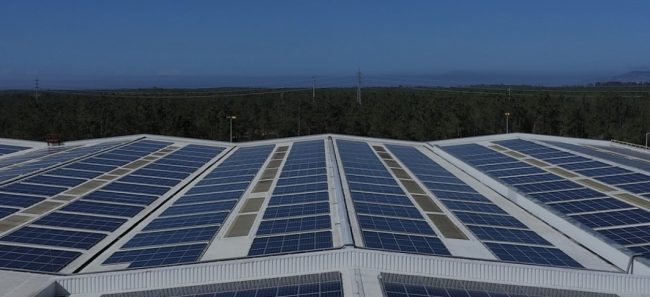How renewable energy communities will change the energetic future


As the world evolves, the need for electricity continues to increase and the global production of triples energy in 25 years is expected. Bloomberg estimates that by 2050 we will have to spend 21 billion dollars only in the modernization of the world electricity network to cope with this growth. But do we really have to expand electric networks? No. There is a smarter way to follow with planning and, above all, decentralization.
By Luísa Matos *
The renewable energy communities (CER), in which members share solar energy, can satisfy most of this growing demand without an expansion of the massive network. These communities produce and use energy exactly where it is necessary, reducing pressure on the electricity grid. In addition to representing a sustainable option capable of reducing tons of CO2 emissions, they also represent an equally advantageous option from an economic point of view. To change mentality and create an energy citizenship, it is essential to give the perspective that the model is scalable and economically sustainable, without a great dependence on subsidies.
The renewable energy community model allows a significant reduction in the energy costs of 15 percent, with further savings of 35 % compared to local energy sharing. A company in Portugal that puts the solar panels on the roof can save 15 cents for every euro in the globality of the electricity bill.
When the energy produced is shared in the community, savings double at 30 cents for each euro spent. As for the future members of the community, they also reduce their electric invoices between ten and twenty cents for every euro.
The management of intelligent energy is vital with solar energy, which changes according to the weather conditions and the hour of the day. Communities can be provided with operating systems to control and reduce the amount of energy they use, in addition to optimizing the moment when they use this energy and deviate the consumption of the hours of multiple costs. With these tools, it is possible to save another 25 cents per euro, which represents a total reduction of about 55% of energy costs. When companies, municipalities and institutions spend less for electrical invoices, they have more resources for their central missions, whether they are creating work, providing public services or serve their communities. This is the reason why renewable energy communities have the potential to change the future, allowing strong local economies.
Portugal has some of the best laws in Europe for sharing solar energy among neighbors. However, the slowness of the process of obtaining licenses and adjacent bureaucracy delays the beginning and growth of energy communities in the country. Although there are significant progress in the license processes, there are still delays in the registration of new members in the communities, which prevent companies that companies really enjoy the benefits of shared energy. The frustration lies in the fact that the adhesion of companies and families to the communities has been conditioned for months pending access to this energy, contributing to the discreditability in the market.
By combining market -oriented solutions with favorable legislation, we can create an energy system for the benefit of the entire community: companies save money, local economies strengthen and the electrical network becomes more sustainable.
Arrived here, what is missing to take this decisive step? It is necessary to encourage the creation of Cer, since they reduce costs, reorganize the electrical network and optimize their investments in order to promote sustainability. By exploiting the market economy and legislative support, we can create an advantageous situation for all interested parties, encouraging a wider participation – of all – in the energy transition.
* CEO from Cleanwatts. Article originally published on the website of the Environment magazine.
Follow the newsdeaveiro.pt channel on WhatsApp.
Advertising and services
»You can quickly activate promotional campaigns in the online newspaper NotíciaiasseAveiro.pt, as well as requesting other services. Consult information to include online advertising.




